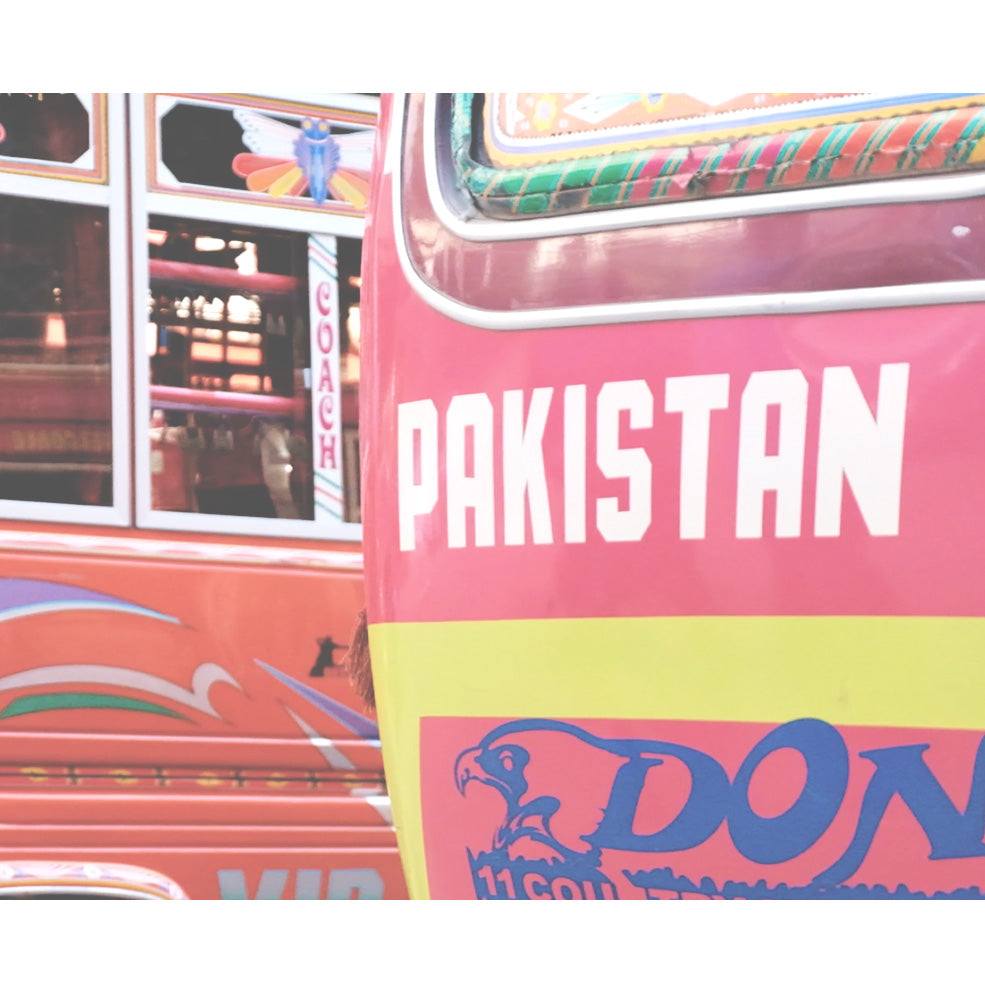DAILY LIFE IN PAKISTAN
In Karachi I live with Muneeb, his wife Manail and their two children in the Defense Housing Area, one of the better areas of the city. Muneeb is the founder of Daraz, the online marketplace in Southeast Asia. Georg and Marco met there before they founded Buckle and Seam a few years ago. So when I'm not spending my evenings with the family and five dogs, I'm often out for dinner or meeting friends for tea.
GLOSSY BUBBLE

I spent some of the weekends at French Beach, a fenced-off area where people walk around the beach in bikinis and shorts. The bumpy road there leads through an industrial area along the harbor, but once you get through the gate you think you're in a European resort.
On my first Saturday in Karachi, Georg and I were invited to a concert before heading to a birthday party. We found a lively party with well-dressed people and some drinks. Most of the guests run their own businesses or work in a large bank. They live in a beautiful house, send their children to school and go on vacation. They say they live in a “glossy bubble.” Everyone is very friendly and humble; some even do charitable work. However, the contrast with the impressions I get of this country during the week when I visit the local schools and our production facilities is difficult to grasp.
TRIP WITH ASAD

On the Sunday after the party, Ramona, our product designer, arrived in Pakistan. We had planned a trip with Asad to Sindh, the surrounding province. Asad, who runs our school together with his wife Fauzea, bought a piece of land on which he and his business partner ran a farm and built a small house. In addition to the huge fish ponds, there are around 70 goats and a few hundred chickens running around on the farm. After a short tour of the farm, we watched the sunset and sat down for dinner with some of Asad's friends. As we watched the starry sky, Asad and his partner, Tariq, told us about their plan to build a water system for clean drinking water and a small clinic with three to four treatment rooms for the population there. Around 7,000 people live within a five-kilometer radius without access to education, clean water or medical care.
"HOW IS IT POSSIBLE THAT PEOPLE HAVE TO LIVE UNDER THESE MISERABLE CONDITIONS WHILE WE ARE ALLOWED TO LIVE SUCH PRIVILEGED LIFE?"

When Ramona, Georg and I met Asad in the morning to drive to the farm, he told us that we would stop by one of these villages to distribute some cookies. I didn't really know what to expect, but as we pulled off the highway and arrived at the "village" over bumpy, unpaved roads, I was speechless. There were a few makeshift mud huts in which a group of 70 people, mostly children and women, lived next to a dirty canal. Some of the children had nothing on, the others only wore torn clothes. They all had terrible teeth and got sick regularly. One of the elderly people told us that this was due to the dirty water in the canal they were drinking from. They sleep next to the road, covered with mosquito nets lying on the ground. When we got out of the car, the many children quickly lined up in front of us and waited patiently until we distributed the food we had brought with us.

